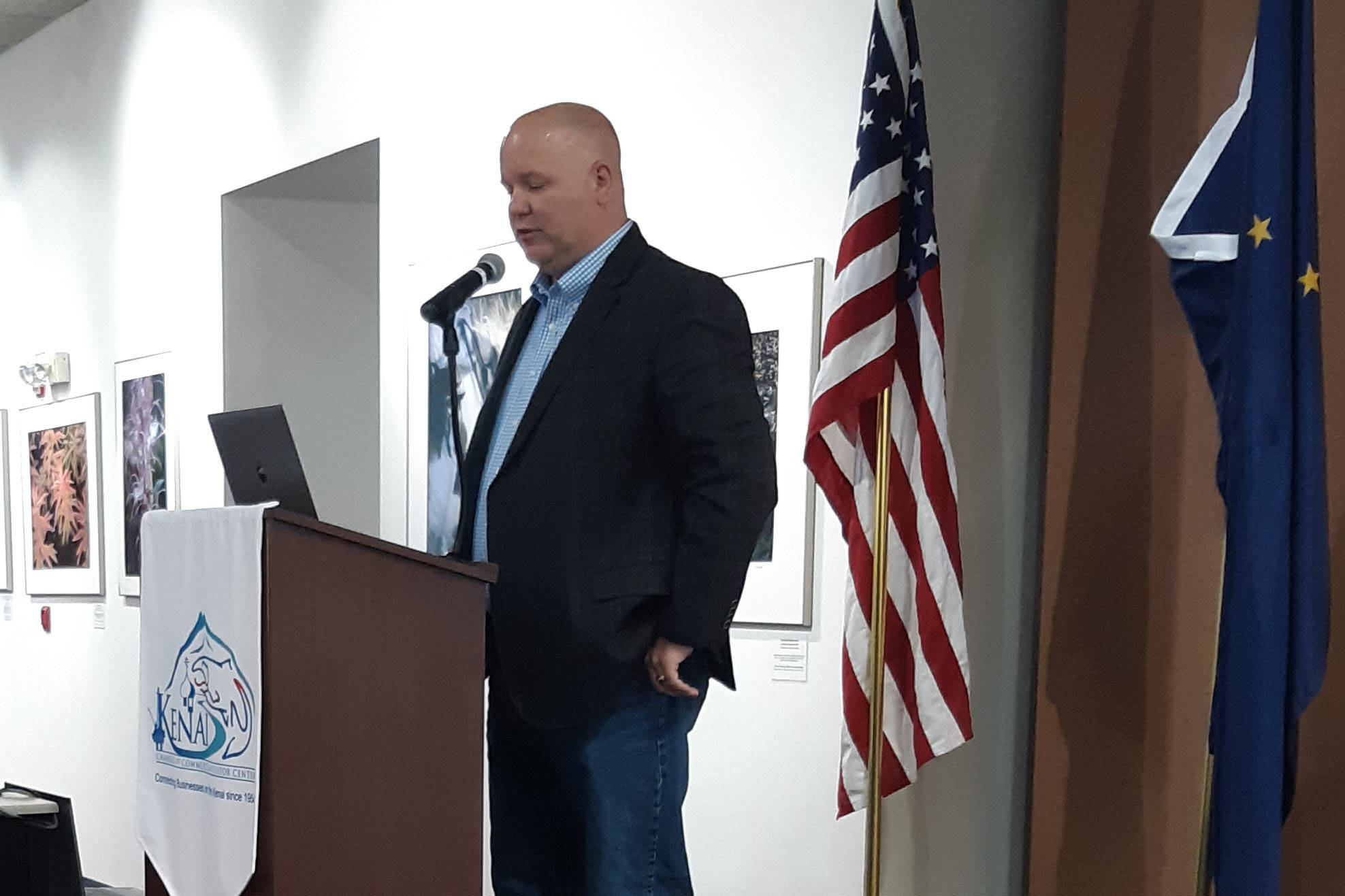A national nonprofit is setting its sights on Alaska to advocate on behalf of workers in the energy and resource extraction industries.
Rick Whitbeck is the state director for Power the Future, and at a Joint Kenai/Soldotna Chamber of Commerce luncheon last Wednesday he spoke about the role his organization plays in pushing for responsible and sustainable resource extraction while protecting the jobs of energy workers in the state. Whitbeck started the presentation by listing some figures about energy workers and their impact on the state’s economy. Whitbeck said that the oil and gas industries in Alaska employed more than 5,000 people in 2017 and provided over $750 million in wages, while mining operations produced over 9,000 jobs and $700 million in wages. Revenues from extraction industries, Whitbeck said, account for more than half of the state’s general fund income every year.
“In short, energy and natural resource workers in this state are the heartbeat of the workforce,” Whitbeck said. “The soul of Alaska’s economy.”
Power the Future is a relatively new organization founded in 2018 by Daniel Turner, a public relations and communications strategist who previously served as director of events and venue marketing for DC Event Hub, director of strategic communications for the Charles Koch Institute and vice president of communications for Generation Opportunity.
Whitbeck became the first state director for Power the Future in December of 2018. Before that Whitbeck served as field director for Stand for Alaska, an initiative that successfully pushed back against Ballot Measure 1, which would have established new requirements and permits for any development projects affecting anadromous fish habitats in the state.
Whitbeck said Power the Future chose to begin its efforts in Alaska because the state’s economy already relies heavily on the energy and resource extraction industries and a number of new developments are currently undergoing analysis and debate, including the proposed Pebble Mine in Bristol Bay and potential drilling in the Arctic National Wildlife Refuge.
Whitbeck travels the state testifying in public comment sessions, writing op-eds to local newspapers and giving presentations on behalf of energy workers. Whitbeck said he advocates both for protecting the jobs already in existence as well as creating new jobs for the state
“I wake up every morning saying ‘how do we make sure that people have jobs and the economy continues to grow?’” Whitbeck said during an interview on Tuesday.
Whitbeck sees as his main opposition environmental groups that advocate against new energy and resource extraction projects, and he intends to combat what he calls “a narrative of fear” surrounding sustainable development.
“Not every new development means the sky is falling,” Whitbeck said. “These are things that should be celebrated, not vilified.”
Power the Future recently hired a Western states director to represent the organization in New Mexico and Colorado, and Whitbeck said the organization hopes to have a director for the Appalachian states by the end of the year.
Power the Future is a 501(c)(4) nonprofit, meaning it is designated as a social welfare organization and is allowed to lobby on behalf of specific policies. The tax code designation also does not require Power the Future to disclose information about individual donors, as donations made to the organization are not tax-exempt. Whitbeck said that Power the Future does not participate in lobbying for any policies on the national or state level.

